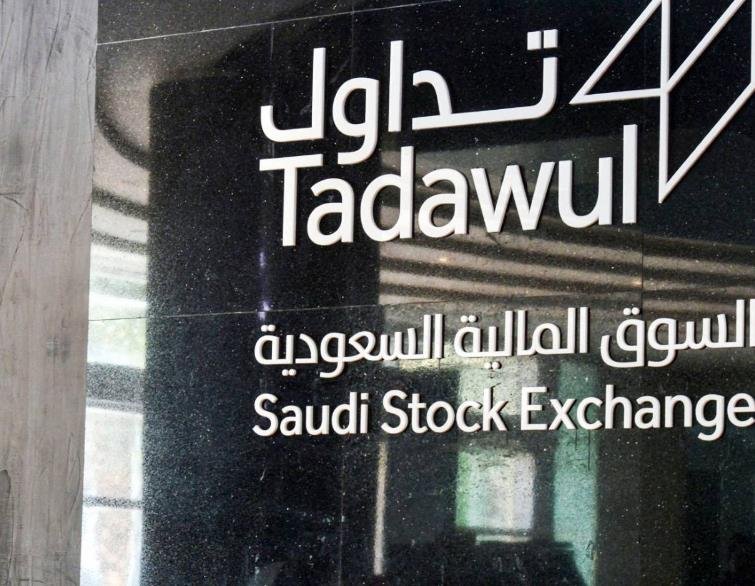The Fourth Milling Company (MC4) has officially entered the Riyadh stock market today, marking a significant milestone for Saudi Arabia’s agricultural sector. This move follows the recent privatization efforts spearheaded by the National Center for Privatization and PPP (NCP) and the Saudi Grains Organization (SAGO).
A History of Privatization in Saudi Milling
The journey of Saudi Arabia’s milling companies towards privatization began in 2021. Over the past two years, the first three milling companies have gone public, each with varying degrees of success. For instance, Arabian Mills (MC2) raised $271 million in its IPO last September. Despite an initial surge, its shares have since dipped below the issue price, closing at SAR 60.40 after peaking at SAR 72.60.
First Milling Company (MC1) had a more promising start in June 2023, posting over 50% returns within a month. However, the stock has faced a downturn, down 11% year-to-date, closing at SAR 66.60 on Monday. Modern Mills (MC3), the former Third Milling Company, also saw a decline after its February IPO, closing at SAR 45.30 despite raising $314.6 million initially.

What’s Different with MC4?
MC4’s listing comes at a time when the Saudi milling sector is experiencing a general decline in share prices, ranging from 6% to 11% year-to-date. Analysts are puzzled because the valuations seem attractive, especially considering Saudi Arabia’s growing population, which should drive demand for flour and other milled products. So, why are the stocks not performing as expected?
Kunal Doshi, Head of Research at GIB Capital, points to the looming uncertainty around government subsidies as a major concern. The current subsidy arrangement, which provides milling companies with wheat at SAR 180 per ton, is set to expire in July 2025. This uncertainty is making investors jittery.
Possible Scenarios Post-2025 Subsidy Expiry:
- Continuation of Subsidies: The government maintains the current subsidy arrangement.
- Partial Lifting of Subsidies: Gradual reduction of subsidies over time.
- Complete Removal of Subsidies: Eliminating subsidies entirely.
Doshi explains, “If the wheat procurement price rises from SAR 180 to SAR 300 per ton and impacts volumes by 5%, Arabian Mills could see its gross margin drop from 46% to around 35%, affecting profitability.”
Investor Sentiment and Market Behavior
The Saudi equity market is heavily driven by retail investors who often engage in profit-booking after an IPO’s initial surge. Typically, stocks jump by about 30% on the first day, encouraging investors to sell and realize gains. However, with MC4, the scenario is different.
Investors have started liquidating their positions soon after the listing, wary of the subsidy uncertainty. This cautious approach is reflected in the modest retail subscription for MC4, which was only four times oversubscribed compared to Modern Mills’ 22 times and MC1’s 10 times.
Doshi adds, “Given the lower demand and the ongoing subsidy concerns, we might see limited gains for MC4 on its listing day or even a flat performance.”
Government’s Stance on Subsidies
The question on everyone’s mind is whether the Saudi government will remove the wheat subsidy. This issue is sensitive, especially considering the low-income population’s dependence on affordable food staples. Historical events like the bread riots during the Arab Spring make the government hesitant to scrap subsidies abruptly.
James Swanston, an Emerging Markets Economist at Capital Economics, believes that the wheat subsidy is unlikely to be cut. He notes, “The wheat subsidy accounts for a small portion of the government’s budget, around 0.4% of GDP. The government prefers to reduce capital expenditure rather than current spending on subsidies to avoid societal unrest.”
Swanston further explains, “If there’s any subsidy reduction, it would probably target local fuel subsidies, which are more expensive and less politically sensitive, especially with global oil prices fluctuating.”
The Future Outlook for MC4
Despite the current challenges, there are reasons to stay optimistic about MC4’s future. The demand for flour and milled products is expected to remain strong due to population growth. Additionally, if the government decides to maintain or gradually adjust subsidies, the milling companies could stabilize and potentially thrive.
Key Factors to Watch:
- Subsidy Policy Decisions: Any changes in subsidy arrangements will significantly impact the milling sector.
- Market Demand: Continued population growth and urbanization will drive the need for milled products.
- Economic Stability: Saudi Arabia’s overall economic health and government policies will influence investor confidence.
| Scenario | Wheat Procurement Price (SAR/ton) | Impact on Gross Margin (%) |
|---|---|---|
| Current | 180 | 46 |
| Price Increase to 300 | 300 | 35 |
Closing Thoughts
The debut of MC4 on Tadawul is a pivotal moment for Saudi Arabia’s milling industry. While the sector faces headwinds due to subsidy uncertainties, the fundamental demand drivers remain strong. Investors will be closely monitoring government policies and the company’s performance to gauge the long-term viability of their investments in the milling sector.
